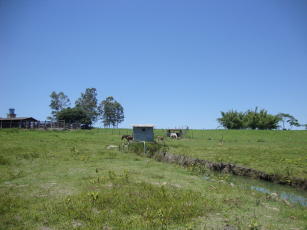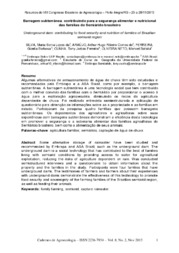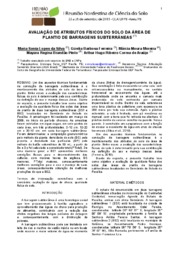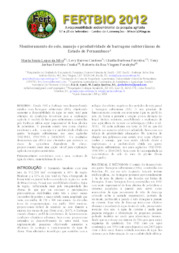Underground dam: an agroecological option for family farming in the Semiarid of the Brazilian Northeast
Underground dam: an agroecological option for family farming in the Semiarid of the Brazilian Northeast

Photo: FAÉ, Veramilles Aparecida
There has been increased interest in the use of techniques to collect and store rainwater in the last few decades, with funding from national and international bodies; however, the general performance of these activities at farmer level is lower than expected, and that relates to the lack of knowledge of the existence and importance of techniques to cope with semiarid conditions.
Considering the social-economic importance of agricultural activities in rain-dependent areas, it is necessary to raise awareness among farmers, public and private companies, financial agent, NGOs, and regional politicians for an efficient process of dissemination of the technology (underground dam).
The underground dam constitutes a technological alternative to make the population of the Brazilian Semiarid have social inclusion through the access to land and water. In view of the above, studies that have innovative systems as results that promote the efficient use and the maintenance of amounts and quality of water resources are fundamental to meet the demands of the agricultural sector.
Keywords: Water collection, Participatory research, Sustainability, Rural development
Considering the social-economic importance of agricultural activities in rain-dependent areas, it is necessary to raise awareness among farmers, public and private companies, financial agent, NGOs, and regional politicians for an efficient process of dissemination of the technology (underground dam).
The underground dam constitutes a technological alternative to make the population of the Brazilian Semiarid have social inclusion through the access to land and water. In view of the above, studies that have innovative systems as results that promote the efficient use and the maintenance of amounts and quality of water resources are fundamental to meet the demands of the agricultural sector.
Keywords: Water collection, Participatory research, Sustainability, Rural development
Ecosystem: Caatinga Region and Mixed forests
Status: Completed Start date: 08/2010 Conclusion date: 07/2012



